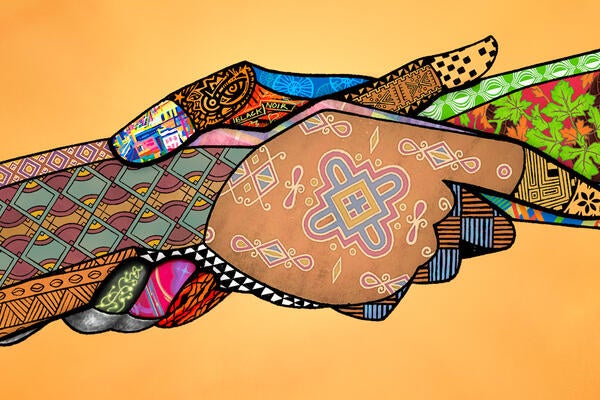Asian Heritage Month offers us the opportunity to pay special attention to the vital roles our community members of Asian heritage play in the success of our institution, while also recognizing the important work needed to eliminate anti-Asian racism, and all forms of racism, on our campuses.
Our recent equity survey noted that close to 50 per cent of our student population had Asian heritage, and we also have a large Asian community represented within our staff and faculty. Across UWaterloo people from a wide variety of Asian cultures and backgrounds are contributing to every aspect of life in our shared community. We have a notable Asian community represented within our staff and faculty, and Asian researchers are doing world-leading work across every faculty, and many leadership positions are held by Asian faculty members and staff. Community members from a wide variety of Asian cultures and backgrounds are contributing to every aspect of life in our shared community.
Recently I travelled to the Indo-Pacific region making stops in Jakarta, Singapore, Hong Kong, Bengaluru and New Delhi. It was a chance to meet alumni across the region. What struck me most was the amazing impact our Asian international alumni have in Canada, in their home countries, and around the globe once they’ve left Waterloo. As some of Waterloo’s staunchest supporters abroad, we must deliberately create a sense of belonging for the international Asian community, while also championing Asian-Canadian excellence locally.
Our Waterloo at 100 paper contains important instruments to ensure the future health, happiness, and success of the Asian community — inside and outside Ring Road. Our vision emphasizes the need to embrace decolonization, indigenization, inclusivity, equity, and anti-racism into our organizational culture. One of our immediate steps is to revisit our institutional values. Part of this exercise includes addressing the President’s Anti-racism Taskforce’s recommendation to revise our institutional values to apply lenses of anti-racism and anti-oppression.
All this connects to another crucial aspect of Waterloo at 100 — “ensuring the physical and mental health and well-being of our students and employees.” From wellness counsellors specializing in working through an anti-oppressive, trauma-responsive and culturally-intentional lens to language services, to wider variety of meal options on campus reflecting the diversity of Asian diets and cultural preferences. We need to work across the institution and with community partners to welcome our international students, who often face unique challenges when they choose to make our institution their home.
This includes calling-out and addressing anti-Asian hatred wherever it is found. It also means creating the conditions where Asian communities can practice and share cultural traditions freely.
It means materially supporting the many robust Asian-led student groups on campus with safe spaces for them to gather and share experiences, and it means not allowing complex geopolitical situations to poison interactions at the University with distortions and prejudices.
It all adds up to the need to collectively respect the contributions, needs and diversity of UWaterloo’s Asian members and using it as a great strength. As we move into this important month, I urge everyone to celebrate the history, stories, and achievements of the Asian community, on our Asian Heritage Month web platform.
Related stories

Read more
Celebrating Black History Month 2026
A message from the President and Vice-Chancellor

Read more
2026 Global Futures: Innovation Update
Defying convention to shape our global futures

Read more
Congratulations to the class of 2025
As we prepare to celebrate Fall 2025 convocation this week, I would like to extend my heartfelt congratulations to our class of 2025.





